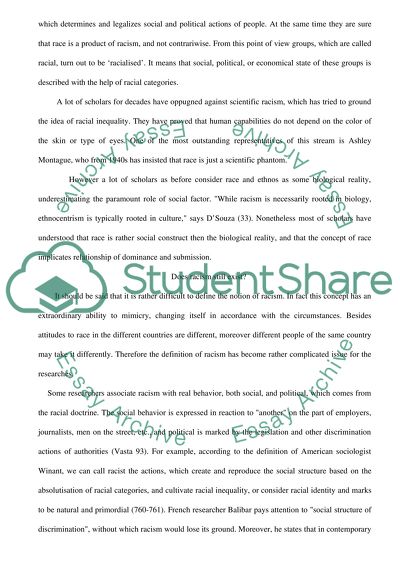Cite this document
(Does Racism Still Exist Coursework Example | Topics and Well Written Essays - 2500 words, n.d.)
Does Racism Still Exist Coursework Example | Topics and Well Written Essays - 2500 words. https://studentshare.org/sociology/1499953-racism-and-society
Does Racism Still Exist Coursework Example | Topics and Well Written Essays - 2500 words. https://studentshare.org/sociology/1499953-racism-and-society
(Does Racism Still Exist Coursework Example | Topics and Well Written Essays - 2500 Words)
Does Racism Still Exist Coursework Example | Topics and Well Written Essays - 2500 Words. https://studentshare.org/sociology/1499953-racism-and-society.
Does Racism Still Exist Coursework Example | Topics and Well Written Essays - 2500 Words. https://studentshare.org/sociology/1499953-racism-and-society.
“Does Racism Still Exist Coursework Example | Topics and Well Written Essays - 2500 Words”. https://studentshare.org/sociology/1499953-racism-and-society.


